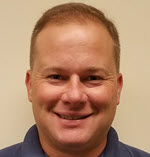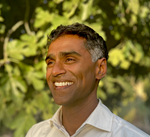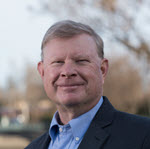

Every Monday from here until the election, the Vanguard will ask all five of the council candidates one question which they have precisely 250 words with which to respond.
Question 7: District Elections seem to have made for more contentious council elections, if elected, what steps would you take to restore civility in Davis City Governance?
District 4 Candidates
 Gloria Partida
Gloria Partida
Civility is defined as the act of being polite in discourse. In politics this definition is stretched often to a breaking point because much of the discourse required to govern involves negotiating interpersonal power such that everyone’s voice is heard.
This is difficult when interests compete, and the diversity of a community makes it exceedingly difficult to find common ground.
Additionally, we must consider that many of our advances in rights for marginalized and vulnerable peoples came from very pointed and heated words and actions. In fact, according to Alex Zamalin, “civility has often been wielded to silence dissent, repress political participation, and justify violence upon people of color.”
Coming from a background of activism I am supportive of pushing for change and presenting supporting evidence in as abundant as possible amounts to make your case. As with all things, there are limits. Knowing those limits is difficult when the need to win obscures the needs of the rest of the community. I am currently reading The Sum of Us and find that the mistaken idea of one racial group advancing must mean that another social group must lose extends to many situations.
This zero-sum game is often at the core of the loss of civility. In the most heated of social pressure cookers, civility is the stabilizer that prevents Machiavellian dynamics from eroding community cohesiveness. In these instances, civility acts as a line that separates asserting one’s position from personally attacking the opposing view and/or holder thereof.
From a standpoint of governance an elected body can model civility by reflective listening, clear and fair boundary setting, maintaining focus on the issue at hand and course correcting when necessary.
Personally, I have had many one-on-one conversations with citizens that have been civil and ended in diminished but not vanished gaps. I have also had civil conversations that have ended in impasses. I am always happy to meet anyone that wishes to. Unfortunately, all anyone can do is maintain civility on their side of the street and hope others will as well.
 Adam Morrill
Adam Morrill
This question neglects to separate the nature of an election from the conduct of municipal governance.
Elections are contentious by nature. We may be offended by the things candidates, their supporters, or others say or do, but we can’t allow our offense to lead us down the path of censorship or other hostility. A number of false allegations and innuendo have been thrown at me on social media, and this has been very hurtful to my friends and family. Obviously, I would prefer this didn’t happen, but I remind myself: “Never wrestle with a pig. You both get dirty, and the pig likes it.”
Now, regarding governance, there are a number of things we can and should do to encourage greater civility. People want opportunities to be heard, and to believe that they are genuinely being heard. We can reformat our commission and city council meetings to be more interactive with the public. We can provide informal gatherings and public workshops at times that are convenient to the public. These are just some suggestions, the community will have more ideas and will know how best to make them successful. That is the central focus of my campaign. I want to help bring citizens together so the city delivers the results our residents desire.
District 1 Candidates
 Bapu Vaitla
Bapu Vaitla
Various forces are increasing the contentiousness of local politics. District elections may play a role, as candidates have more incentive to directly attack each other. The national environment is more divisive, the consequence of right-wing political parties empowering extremists. Social media contributes to a combativeness that is rarely present in face-to-face interactions. Finally, the difficulties of the last few years—the COVID-19 pandemic, economic uncertainty, accelerating climate change—have taken a great toll on us, and our public expression of frustration is perhaps rawer than it otherwise would be.
There is no consensus definition of political civility. What feels discourteous to me may feel like a necessarily urgent exercise of free speech to you. But all of us can agree on the importance of being respectful to each and every person we meet, even those with whom we differ. Respect in this sense means engaged listening, acknowledgement of the other person’s perspective, and a dedicated effort to identify areas of agreement. Elected officials have the responsibility of modeling such behavior.
I also hope that we can learn to forgive each other. Each of us makes mistakes; each of us gets caught from time to time in institutional and cultural forces beyond our control; each of us are sometimes compelled by less than admirable personal motives. But we are all works in progress. I hope that others give me the space to learn and become a better person, and I hope I am able to give the same to others.
 Dan Carson
Dan Carson
Our city’s shift to district elections was hotly debated. In the end, it was clear our city had no choice but to make the change or waste millions of taxpayer dollars on litigation we had virtually no chance of winning. An appellate court ruled in Santa Monica’s favor in 2020 but three months later the California Supreme Court ordered the appellate court ruling be immediately “depublished.” State law remains as is.
But we did take action (October 6, 2020) to ensure civility in our city government. I authored, and my colleagues adopted with changes, a set of guiding principles to ensure that our city is governed as one and not divided by district lines.
Our resolution directs that councilmembers retain a citywide focus; that decisions about staffing and funding benefit the city as a whole; that commission appointments be made citywide by all councilmembers to ensure diversity; and that the council work to ensure that every district is healthy and strong with each councilmember interacting with residents of all council districts.
Council also adopted the approach I advocated of appointing mayor the councilmember with the longest tenure who had not yet served in that role.
We must guard against the potential for parochialism and political squabbling that district elections could someday bring. But, so far, my council colleagues and I have maintained civility in governance and struck a good balance between addressing the needs of our own council districts and achieving the best outcomes for our city as a whole.


No response from Ms Fortune?
Lie down with dogs get up with fleas.
How do you restore civility? By taking on your own supporters and telling them to knock it off. Your opposition can’t do it with your supporters. This is my beef with Morrill. When asked by the Enterprise about the sleazy attack on Partida he didn’t call off the dogs and instead dog piled her.
Just imagine if he had said something like I don’t think the attack is productive and wish that those behind it would stop so we can focus on the issues the voters care about, housing, traffic and roads, homelessness, the budget, a new general plan and economic development.
The campaign would be in an entirely different place if he had done that. Its a pity that he didn’t. Still its never too late to do the right thing.
I agree with you Ron … telling them to knock it off is advice all the campaigns could benefit from. The personal attacks on Morrill and Partida are equally egregious, and “But they did it first!” is no excuse.
Add the attacks on Carson… by promoters of another candidate in District 1…
Its a false equivalency Matt. Just like only Nixon could go to China and only Trump could call off the mob on Jan. 6, only Morrill can stop the negative campaigning by his supporters. To date I have seen no effort by him at all to do so.
For the record, my only association with Gloria’s campaign is that I wrote her a check for $150 although I might have endorsed her too. (I have that disease I can’t remember the name of. I think its called Old Timers.) My plan was to otherwise stay out of it until the No on H people started sliming her. I’m more than ready to stand down so the people can get back to debating issues germane to service on the CC. But until his supporters do stand down on the personal attacks my mantra is Mathew 26:52.
False equivalent… Nixon did not “egg on” our relations with China… Kissinger was the one who smoothed the waves…
Trump “egged on” (along with his minions) Jan 6… evidence is still being gathered…
Morrill has shown a minor lack of judgement as to not repudiate attacks on Partida… as has Fortune, as to Carson…
Am thinking Matt 18:15-17 is a better referent…
But we have the doctrine (Constitution) of separating ‘church’ from State… so except for the wisdom folk take from any given source, probably doesn’t matter…
Still, your referent is very interesting, as it involves a betrayal, a response, and a rebuke… the rebuke being “those who live by the sword shall die by the sword”…
Or, going Roman, is this a sword you want to die on?
It literally does mean exactly that, when it comes to things like affirmative action.
In which case, your skin color is one of the determining factors, “for”, or “against” you.
It also comes out in other ways, such as the time that a recall was initiated largely because some in Davis didn’t like the skin color of a selectee. Originating from the same people who claim to be concerned about racism.
And then there’s some candidates who repeatedly point out that they are one of the “preferred” skin colors. (And sometimes, a preferable biological gender, as well.)
is mentioned above, but I use it in a different context: The Huge Myth of the Small Town is that “just listening to people will get you far”, and that e.g. “at the end of the day, we all use the sewers that are randomly selected for presence of COVID in the community” – or something like that.
The problem is that different people and entities have vastly different power here in Davis…. some with much more power than others. So when an elected official exaggerates their positive affect about various issues, it’s different than if a less powerful person does it. When the property owning cabal in Davis doesn’t want something to happen… it doesn’t. When someone decides to listen or not, not all ears are equal. And some grow from less power to more… that’s the tangled beauty of the USA, but this requires – at the very least – some variation on claims of how one wields equity.
As for me, I always speak through the lens of anxiety and borscht.